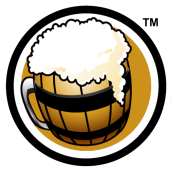Hops
|
Amount
|
Variety
|
Cost
|
Type
|
AA
|
Use
|
Time
|
IBU
|
Bill %
|
|
0.10 oz |
CO2 Hop Extract0.1 oz CO2 Hop Extract Hops |
|
Pellet |
60 |
Boil
|
60 min |
24.04 |
2% |
|
1 oz |
Yakima Chief Hops - Loral LupuLN2 (Cryo)1 oz Loral LupuLN2 (Cryo) Hops |
|
Lupulin Pellet |
19.5 |
Hop Stand at 170 °F
|
0 min |
6.9 |
19.6% |
|
1 oz |
Yakima Chief Hops - Loral1 oz Loral Hops |
|
Pellet |
12 |
Hop Stand at 170 °F
|
0 min |
4.25 |
19.6% |
|
2 oz |
Hallertau Hersbrucker2 oz Hallertau Hersbrucker Hops |
|
Pellet |
4 |
Hop Stand at 170 °F
|
0 min |
2.83 |
39.2% |
|
1 oz |
Barth-Haas - Triple Pearl1 oz Triple Pearl Hops |
|
Pellet |
10.8 |
Hop Stand at 170 °F
|
0 min |
3.82 |
19.6% |
|
5.10 oz
/ $ 0.00
|
Mash Guidelines
|
Amount
|
Description
|
Type
|
Start Temp
|
Target Temp
|
Time
|
|
2.62 gal |
|
Strike |
146 °F |
146 °F |
60 min |
Starting Mash Thickness:
1.5 qt/lb
Starting Grain Temp:
80 °F |
Other Ingredients
|
Amount
|
Name
|
Cost
|
Type
|
Use
|
Time
|
|
1 oz |
Lactic acid
|
|
Water Agt |
Mash |
0 min. |
Target Water Profile
Balanced Profile
Notes
I prefer working in percentages where possible—the grist for this recipe is 78% Pilsner malt, 20% flaked wheat, and 2% sugar. I’m a huge fan of low-oxygen brewing, reducing hot-side aeration where possible, and being gentle as possible throughout the brewing process. This produces the cleanest, brightest beer possible.
I start by de-oxygenating all my brewing liquor by boiling the entire amount first, then cooling it down to my mash strike temperature. I treat the entire brewing liquor with all minerals (mash and sparging water together) to a 1:2 ratio of sulfate to chloride after the de-oxygenating boil, but before cooling. Do not exceed 100 ppm chloride.
Acidify all of the brewing liquor using lactic acid to achieve a mash pH between 5.1 and 5.3. Mash for 45–60 minutes at 145–147°F (63–64°C). Mash pH should fall between 5.1 and 5.3, but add additional acid if the pH is above 5.3. Gently vorlauf for 20 to 25 minutes or until runoff is very clear. Sparge until the full volume is achieved in the kettle, stop sparging if gravity falls below 1.010, and top up the kettle with excess brewing liquor to achieve the full boil volume.
Boil for 90 minutes. At 60 minutes add the CO2 hop extract, targeting 30 IBUs. After the boil, cool the wort down to 170–160°F (77–71°C). Add the remaining hops, shooting for roughly 1 oz./gal. (7.5 g/L). Whirlpool the hops and let the hops and trub settle for 25–30 minutes. Cool the wort to 67°F (19°C) and rack into the fermenter.
Oxygenate the wort at 1.5 L/min for 1 to 2 minutes with pure O2. Pitch one pack of Rustic Imperial yeast or Wyeast 3726 Farmhouse Ale Yeast for 200 billion or 1.04M cells/mL/°P. Hold temperature at 67–70°F (19–21°C) for first 24 hours, then let the fermentation free-rise to 95–100°F (35–38°C). Hold that temperature until fermentation is complete. Near the tail end of the fermentation (around 1.010/2.6°P or so), attach a spunding valve. Crash cool and condition for 1 to 2 weeks at 32°F (0°C). Force carbonate to 2.7–3 vol. (5.4–6 g/L) of CO2.
Award Winning Recipe

Last Updated and Sharing

- Public: Yup, Shared
- Last Updated: 2023-06-05 19:32 UTC
For quick copying and pasting to a text based forum or email.
Click the Download as HTML file button below.
Recipe costs can be adjusted by changing the batch size. They won't be saved but will give you an idea of costs if your final yield was different.
|
Cost $ |
Cost % |
| Fermentables |
$ |
|
Steeping Grains
(Extract Only) |
$ |
|
| Hops |
$ |
|
| Yeast |
$ |
|
| Other |
$ |
|
| Cost Per Barrel |
$ 0.00 |
|
| Cost Per Pint |
$ 0.00 |
|
| Total Cost |
$ 0.00 |
|
Discussion about this recipe:
